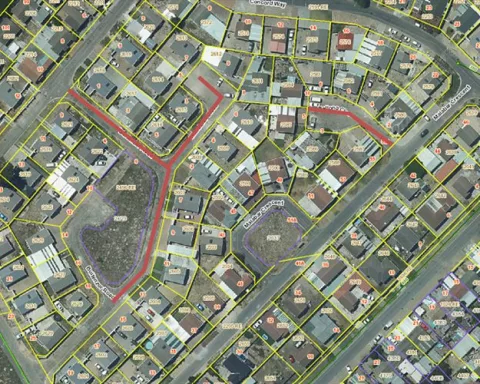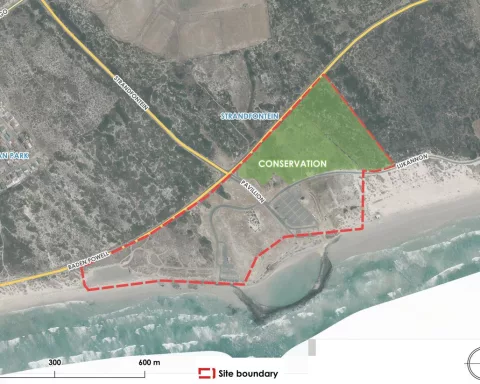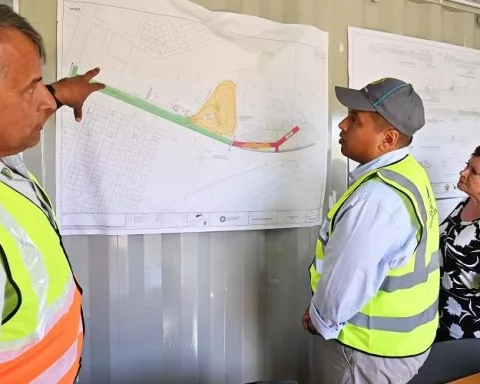Cape Town is leading the pack in South Africa’s urban development scene with an ambitious plan to invest R39.7bn in infrastructure over the next three years, generating 130,000 job opportunities and addressing socio-economic inequalities by allocating R9bn for the city’s lower-income households. This investment is 80% larger than the next urban contender and a whopping 98% larger than eThekwini, the third largest. This model of sustainable urban development is setting the standard for other cities to follow.
What is Cape Town’s infrastructure budget for the next three years?
Cape Town’s infrastructure budget for the next three years is R39.7bn, which is 80% larger than the next urban contender and a whopping 98% larger than eThekwini, the third largest. This investment aims to generate an impressive 130,000 job opportunities in the construction sector and address socio-economic inequalities by allocating R9bn for the city’s lower-income households. It’s a model of sustainable urban development from which other cities can glean valuable insights.
Cape Town’s Infrastructure Prospect
South Africa’s urban development scene is witnessing a dramatic transformation with Cape Town leading the pack. Recently, Mayor Geordin Hill-Lewis announced the city’s ambitious plan to surge ahead of all other cities regarding infrastructural investments. The forecast for the coming three years suggests that the city’s endeavors will generate an impressive 130,000 job opportunities in the construction sector. This initiative is a critical component of the city’s Medium-Term Revenue Expenditure Framework (MTREF) which positions Cape Town at the vanguard of South Africa’s urban development.
Cape Town’s infrastructure budget for the next three years is pegged at a significant R39.7bn, far surpassing Joburg’s R22bn and eThekwini’s R20bn. This is not merely a symbolic advancement, but a leap that is 80% larger than the next urban contender and a whopping 98% larger than eThekwini, the third largest. This move underscores Cape Town’s resolve to establish itself as the nation’s leading city.
The Economic Windfall
The economic implications of this investment are manifold. Foremost among these is an increase in job opportunities. Mayor Hill-Lewis predicts that these infrastructure investments will yield roughly 130,000 job openings in the construction industry. However, it is essential to clarify that these numbers only reveal one facet of the story. They do not account for the broader economic upliftment that the city will experience due to its vigorous development.
The city’s economy has already benefited from the addition of 363,000 new jobs since the start of Mayor Hill-Lewis’ term in November 2021. The city is experiencing a swell of people and businesses setting up shop, with factories recruiting, call centres growing, and entrepreneurs launching new ventures. The city is thriving and is gearing up to outpace Johannesburg as South Africa’s most populated city.
Tackling Socio-economic Disparities
However, infrastructure spending isn’t solely about economic growth; it also aims to address socio-economic inequalities. A considerable R9bn of the infrastructure budget is designated for Cape Town’s lower-income households. Far from being a nominal gesture, this investment exceeds the entire infrastructure budget of any other city for the 24/25 fiscal year. The aim is to channel these funds towards enhancing the living conditions in the poorest and fastest-growing areas of Cape Town, an effort intended to rectify the injustices of the past.
The envisaged infrastructure projects aspire to deliver more than just essential amenities. The goal is to bestow dignity. As Mayor Hill-Lewis underscores, for many Cape Town citizens, hope stems from living in more dignified conditions, including housing, sanitation services, neighbourhoods, streets, and public spaces. This initiative goes beyond mere budget allocation; it involves making strategic investments that will genuinely impact lives.
Unprecedented Fiscal Plans
To appreciate the magnitude of Cape Town’s plans, one must compare the budgets of other metros for the 24/25 fiscal year. While Johannesburg’s budget stands at R7.2bn, Ethekwini at R7.5bn, Ekurhuleni at R2.9bn, Tshwane at R2.3bn, Nelson Mandela Bay at R1.6bn, and Mangaung at R1.3bn, Cape Town towers over all with a remarkable R12.1bn budget.
The development taking place in Cape Town transcends numbers. It’s about overhauling the city’s social and economic fabric. It’s about prioritizing development in a way that simultaneously stimulates the economy and brings about meaningful change in the city’s poorest regions. It’s a model of sustainable urban development from which other cities can glean valuable insights.
What is sustainable urban development, and how is Cape Town pioneering it?
Sustainable urban development refers to a model of urban development that prioritizes the economic, social, and environmental well-being of a city’s inhabitants. Cape Town is pioneering this model of urban development by investing R39.7bn in infrastructure over the next three years, generating 130,000 job opportunities, and addressing socio-economic inequalities by allocating R9bn for the city’s lower-income households. This investment is 80% larger than the next urban contender and a whopping 98% larger than eThekwini, the third largest.
How does Cape Town’s infrastructure budget compare to other cities in South Africa?
Cape Town’s infrastructure budget for the next three years is R39.7bn, which is 80% larger than the next urban contender and a whopping 98% larger than eThekwini, the third largest. In comparison, Johannesburg’s budget stands at R22bn and eThekwini’s budget is R20bn.
What economic benefits will Cape Town experience due to these infrastructure investments?
Cape Town’s infrastructure investments are expected to yield roughly 130,000 job openings in the construction industry. Additionally, the city’s overall economic growth is expected to benefit from the addition of these infrastructure developments, with factories recruiting, call centers growing, and entrepreneurs launching new ventures.
How is Cape Town’s infrastructure spending addressing socio-economic inequalities?
A considerable R9bn of the infrastructure budget is designated for Cape Town’s lower-income households. This investment exceeds the entire infrastructure budget of any other city for the 24/25 fiscal year. The aim is to channel these funds towards enhancing the living conditions in the poorest and fastest-growing areas of Cape Town, an effort intended to rectify the injustices of the past.
Why is Cape Town’s infrastructure investment significant?
Cape Town’s infrastructure investment is significant because it sets the standard for other cities to follow. The city is pioneering sustainable urban development by prioritizing economic, social, and environmental well-being. Additionally, the investment is 80% larger than the next urban contender and a whopping 98% larger than eThekwini, the third largest, demonstrating Cape Town’s resolve to establish itself as the nation’s leading city.
How does Cape Town’s infrastructure investment aim to bestow dignity?
The envisaged infrastructure projects aspire to deliver more than just essential amenities. The goal is to bestow dignity. As Mayor Hill-Lewis underscores, for many Cape Town citizens, hope stems from living in more dignified conditions, including housing, sanitation services, neighborhoods, streets, and public spaces. This initiative goes beyond mere budget allocation; it involves making strategic investments that will genuinely impact lives.












